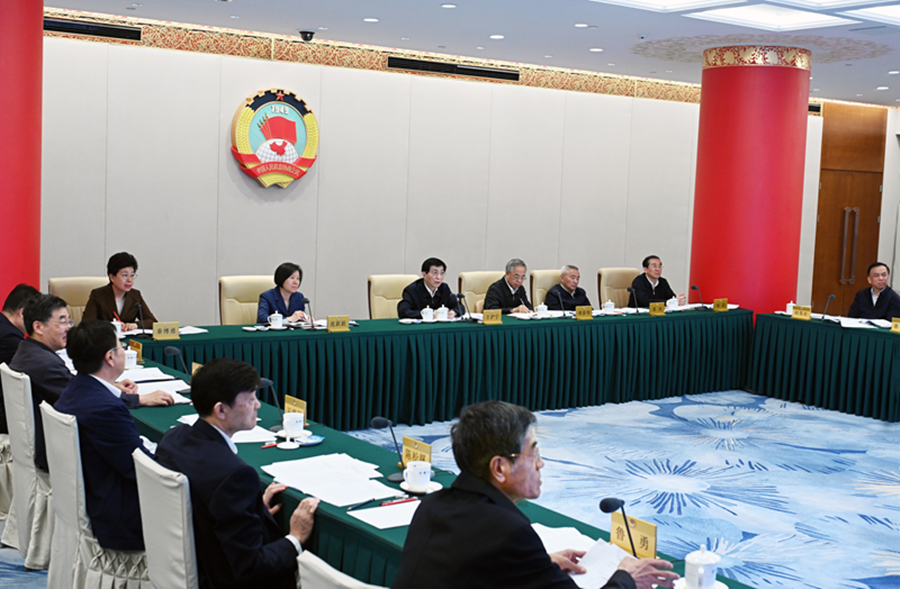CPPCC members discuss silver economy development

Wang Huning, a member of the Standing Committee of the Political Bureau of the Communist Party of China Central Committee and chairman of the Chinese People's Political Consultative Conference (CPPCC) National Committee, presides over a teleseminar held by the CPPCC National Committee in Beijing on May 23, 2025. [Photo/CPPCC Daily]
The National Committee of the Chinese People's Political Consultative Conference (CPPCC) held a teleseminar on the development of the silver economy in Beijing on May 23. Wang Huning, chairman of the CPPCC National Committee, presided over the meeting.
Wang, also a member of the Standing Committee of the Political Bureau of the Communist Party of China (CPC) Central Committee, said that since the 18th CPC National Congress in 2012, the CPC Central Committee has adhered to the people-centered development philosophy, and implemented a national strategy in response to aging population. Progress has been made in ensuring the elderly are well cared for, can engage in meaningful activities, and enjoy fulfilling lives, according to Wang. CPPCC members need to study the CPC Central Committee's decisions and plans on the elderly-care work and silver economy development to make their proposals more targeted and effective, he said.
Wang emphasized that developing the silver economy is an essential response to population aging, a key measure to foster new economic growth drivers, and an important means to improve the quality of life for the people. He urged CPPCC members to focus on key issues such as planning for silver economy development in the 15th Five-Year Plan period (2026-30), stimulating consumption among the elderly, advancing the elderly health service system, improving the supply of elderly-friendly products and services, developing new technologies and industries for elderly care, innovating elderly care models at the grassroots level, and developing elderly care-related financial products. CPPCC members need to conduct in-depth research, report on new situations and challenges in a timely manner, and propose advice and suggestions to help implement related policies effectively, he said.
Wang called for greater efforts in publicizing the CPC Central Committee's policies regarding the development of elderly care programs and services, guiding the general public to view aging in a positive light, and fostering a societal environment that respects and cares for the elderly. He also called for active participation in “serving the people” activities to provide more quality services for the elderly.
During the meeting, 11 CPPCC National Committee members and one expert shared their insights onsite or via video link. They proposed improving the policy framework, strengthening planning guidance, and promoting the scientific and orderly development of elderly care programs and services. Other suggestions included accelerating the development of elderly care systems, increasing the supply of quality products and services, improving elderly care in rural areas, fostering environments that empower the elderly, expanding market participation, promoting the integration of healthcare and elderly care, accelerating digital empowerment, and strengthening regulatory safeguards to better meet the needs of the elderly and enhance their quality of life.
CPPCC National Committee vice-chairpersons Hu Chunhua, Shen Yueyue, Shao Hong, Qin Boyong, and Yang Zhen attended the meeting. Officials from the National Development and Reform Commission, the Ministry of Civil Affairs, and the Ministry of Commerce provided briefings on relevant issues and engaged in discussions with CPPCC members.
Copyright © The National Committee of the Chinese People's Political Consultative Conference.
All rights reserved. Presented by China Daily.
京ICP备08100501号-1

